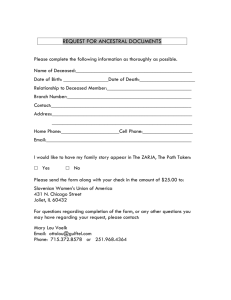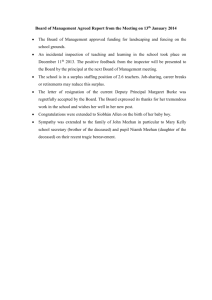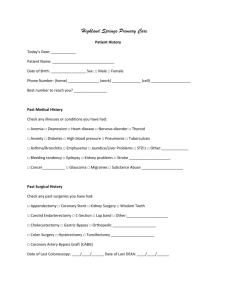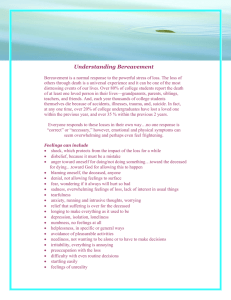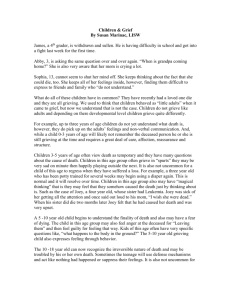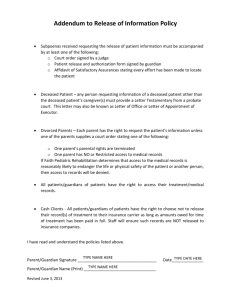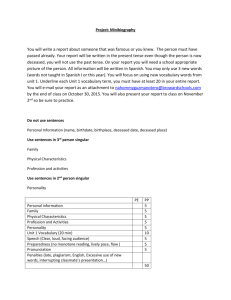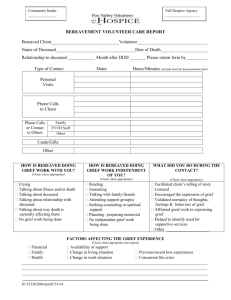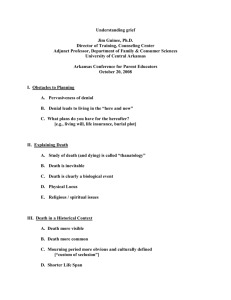A. Five or more of the following symptoms have been present during
advertisement
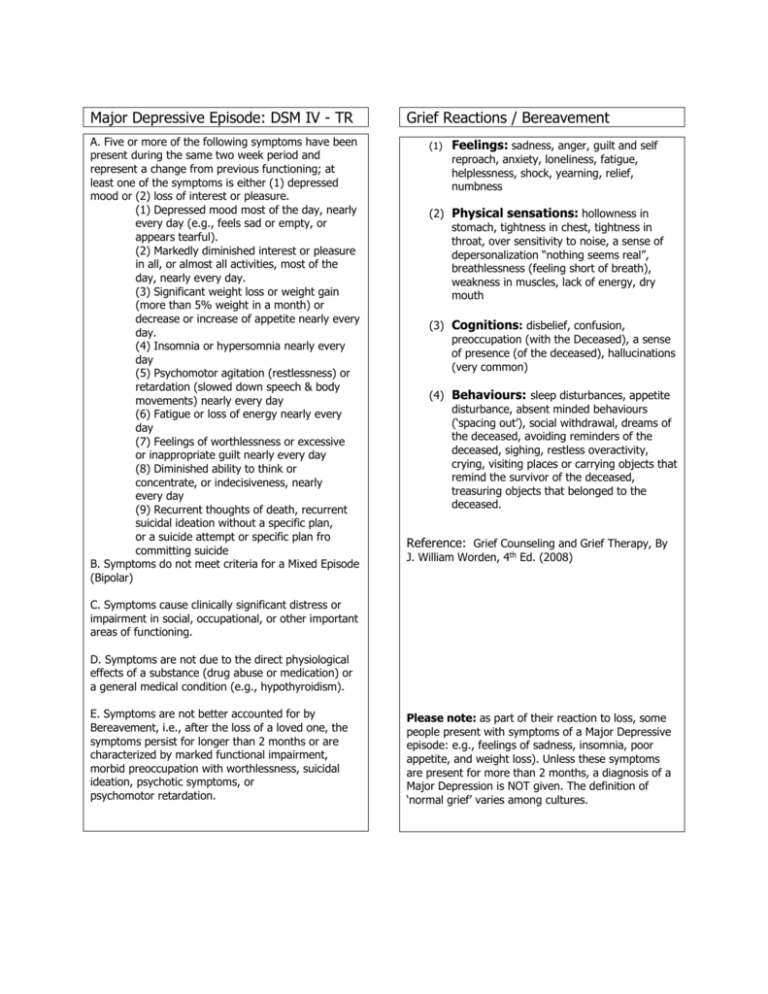
Major Depressive Episode: DSM IV - TR A. Five or more of the following symptoms have been present during the same two week period and represent a change from previous functioning; at least one of the symptoms is either (1) depressed mood or (2) loss of interest or pleasure. (1) Depressed mood most of the day, nearly every day (e.g., feels sad or empty, or appears tearful). (2) Markedly diminished interest or pleasure in all, or almost all activities, most of the day, nearly every day. (3) Significant weight loss or weight gain (more than 5% weight in a month) or decrease or increase of appetite nearly every day. (4) Insomnia or hypersomnia nearly every day (5) Psychomotor agitation (restlessness) or retardation (slowed down speech & body movements) nearly every day (6) Fatigue or loss of energy nearly every day (7) Feelings of worthlessness or excessive or inappropriate guilt nearly every day (8) Diminished ability to think or concentrate, or indecisiveness, nearly every day (9) Recurrent thoughts of death, recurrent suicidal ideation without a specific plan, or a suicide attempt or specific plan fro committing suicide B. Symptoms do not meet criteria for a Mixed Episode (Bipolar) Grief Reactions / Bereavement (1) Feelings: sadness, anger, guilt and self reproach, anxiety, loneliness, fatigue, helplessness, shock, yearning, relief, numbness (2) Physical sensations: hollowness in stomach, tightness in chest, tightness in throat, over sensitivity to noise, a sense of depersonalization “nothing seems real”, breathlessness (feeling short of breath), weakness in muscles, lack of energy, dry mouth (3) Cognitions: disbelief, confusion, preoccupation (with the Deceased), a sense of presence (of the deceased), hallucinations (very common) (4) Behaviours: sleep disturbances, appetite disturbance, absent minded behaviours (‘spacing out’), social withdrawal, dreams of the deceased, avoiding reminders of the deceased, sighing, restless overactivity, crying, visiting places or carrying objects that remind the survivor of the deceased, treasuring objects that belonged to the deceased. Reference: Grief Counseling and Grief Therapy, By J. William Worden, 4th Ed. (2008) C. Symptoms cause clinically significant distress or impairment in social, occupational, or other important areas of functioning. D. Symptoms are not due to the direct physiological effects of a substance (drug abuse or medication) or a general medical condition (e.g., hypothyroidism). E. Symptoms are not better accounted for by Bereavement, i.e., after the loss of a loved one, the symptoms persist for longer than 2 months or are characterized by marked functional impairment, morbid preoccupation with worthlessness, suicidal ideation, psychotic symptoms, or psychomotor retardation. Please note: as part of their reaction to loss, some people present with symptoms of a Major Depressive episode: e.g., feelings of sadness, insomnia, poor appetite, and weight loss). Unless these symptoms are present for more than 2 months, a diagnosis of a Major Depression is NOT given. The definition of ‘normal grief’ varies among cultures.

